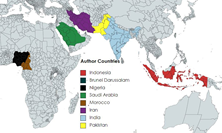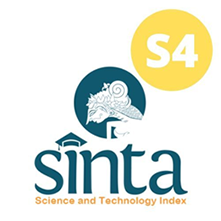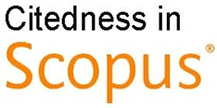NutriTalk: Nutrition Intervention by Experts to Reduce the Impact of Stunting Through Mobile-Based Applications Using Agile Method
Abstract
The prevalence of childhood stunting, a pervasive global health concern primarily attributed to persistent malnutrition, underscores an urgent need for intervention. In Indonesia, where stunting rates are alarmingly high, with approximately 27.6% of children under five affected, innovative solutions are imperative. This study introduces "Nutri Talk," a mobile application developed using Agile Methodology aimed at revolutionizing nutritional consulting services. The application facilitates seamless communication with nutrition specialists, offering evidence-based information and personalized consultations to empower parents in making informed dietary decisions for their children. Through rigorous testing, including Boundary Value Analysis (BVA) and User Acceptance Testing (UAT), the application demonstrates robust functionality and user satisfaction. "Nutri Talk" stands poised to mitigate the long-term impacts of stunting, leveraging technology to enhance nutritional outcomes. This research advocates for a comprehensive approach to combat stunting, combining technological advancements with targeted interventions, ultimately contributing to improved childhood nutrition and development.

This work is licensed under a Creative Commons Attribution-ShareAlike 4.0 International License.
Authors who publish with this journal agree to the following terms:
- Authors retain copyright and grant the journal right of first publication with the work simultaneously licensed under a Creative Commons Attribution License that allows others to share the work with an acknowledgement of the work's authorship and initial publication in this journal.
- Authors are able to enter into separate, additional contractual arrangements for the non-exclusive distribution of the journal's published version of the work (e.g., post it to an institutional repository or publish it in a book), with an acknowledgement of its initial publication in this journal.
- Authors are permitted and encouraged to post their work online (e.g., in institutional repositories or on their website) prior to and during the submission process, as it can lead to productive exchanges, as well as earlier and greater citation of published work (See The Effect of Open Access).











